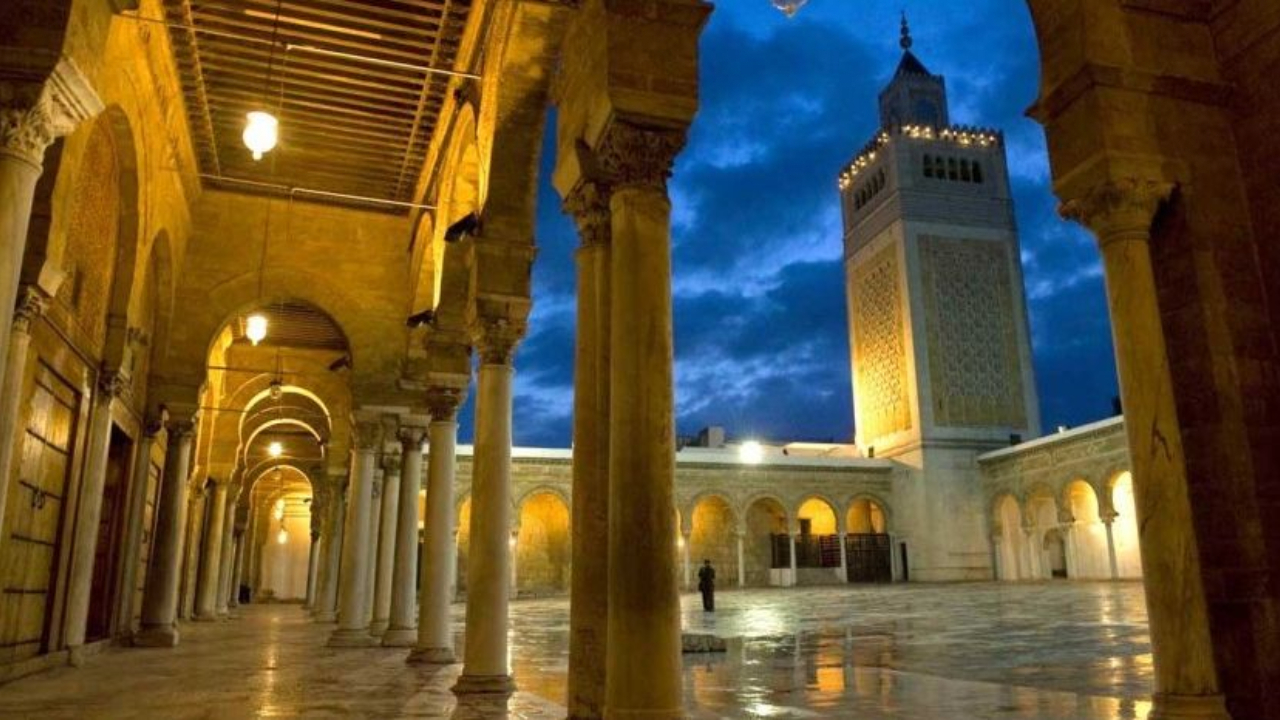In our tradition we describe the Quran as the pre-eternal divine speech. The text of the Quran is technically speaking called a Mushaf. We can call the written text the Quran, and there are several hadith that indicate this, such as:
نَهَى رَسُولُ اللَّهِ صَلَّى اللَّهُ عَلَيْهِ وَسَلَّمَ أَنْ يُسَافَرَ بِالْقُرْآنِ إِلَى أَرْضِ الْعَدُوِّ
Related by ‘Abdullah b. ‘Umar: ‘The Prophet (Allah bless him and give him peace) forbade traveling to the lands of the enemy with the Quran.’
This refers ...
The Quran is ‘Light upon Light’ and the Prophet Muhammad (Allah bless him and give him peace) is ‘Light upon Light.’
In Sura al-A’raf, the Divine says, ‘Those who believe in him, honor him, help him, and follow the Light [the Quran] that is sent down with him—it is they who shall prosper.’ (7:157)
And in Sura al-Ma'ida the Divine says, ‘Certainly there has come to you, from Allah, a Light [the Prophet] and a clear book.’ (5:15) The exegetes say this ‘light’ refers to the Holy Prophet (Allah bl...
The names of the Prophet (Allah bless him and give him peace) carry meanings that perfectly correspond to ‘the one named’. There is absolute congruence between his names and his embodiment of their meanings.
Divine wisdom entails that there be a correspondence between the name and ‘the one named’ in terms of beauty or ugliness. This is why the Prophet (Allah bless him and give him peace) would at times change an ugly name to a beautiful name, and occasionally change a good name to an ugly name,...
Ibn 'Ata'illah says in Taj al-'Arus:
Whosoever is nearing the end of his life and wants to recover what he has missed [of righteousness] should invoke with the comprehensive formulae of remembrance. By doing that, a short life will be as if it were long. An example of this is him saying “Glorified and transcendent is Allah, the Tremendous, and to Him is all praise—by the number of His creation, His self-pleasure, the weight of His Throne, and the ink of His words.” Likewise, whosoever has misse...
In Nomine Dei Misericordis, Misericordiae, Amen.
Praise be to God, the Lord of the worlds, and may peace and blessings be upon our master Muhammad the Trustworthy, and to proceed:
As the venerable Al-Nasafi said, thus do the people of truth assert:
The realities of things are constant, and knowledge of them is ascertained contrary to the Sophists' claims.
There are three sources of knowledge for creation: sound senses, truthful reports, and reason.
The senses are five: hearing, sight, sme...
Shaykh Muhammad al-Qandusi says in his magnum opus al-Ta'sis (Cipher of the Spirit):
The reality of right (yamin) is highness and elevation. By highness and elevation we mean elevation in sanctity (hurma) and highness in spiritual degrees that entail arrival unto the spring of the Divine Presence and experiencing the delight of its beauty, and other such pursuits. The reality of the left (Shimal) is the opposite of highness and elevation. It is unadulterated lowering and sinking; it is
...As Muslims, our commitment is to the revealed law—the Shariah is above us all. The Mukallaf must know the Hukm al-Shari’i in anything they say or do.
Imams al-Bukhari and Muslim relate that Rifa'a ibn Rafi said, ‘When we were praying behind the Prophet (Allah bless him and give him peace) and he raised his head from bowing and said, "Allah hears whoever praises Him", a man behind him said, "Our Lord, Yours is the praise, abundantly, wholesomely, and blessedly therein." When he rose to l
...QUESTION
The Prophet Muhammad (Allah bless him and give him peace) is considered 'Ummi.’
Is this a reference that he (Allah bless him and give him peace) categorically could not read and write or is it instead a reference that he was untaught by man?
There are some circles that deny the former position outright and advocate the latter meaning of 'Ummi' as the only orthodox view.
ANSWER
Preamble
There are several things that must be discussed to give this question justice.
First: Th...
"The biographies are like a sword from the swords of God."
—Imam Abu Hanifa
He is the Shaykh and knower of Allah, Abu ‘Abdillah Muhammad b. al-Qasim b. Ahmad al-Qandusi al-Awsi (d. 1278 AH/1861 CE) of Kénadsa, Algeria.
Biographers of al-Qandusi mention that he was a humble man with an affable disposition. He made his living selling medicinal herbs and spices in the spice market of Fez. He lived a life of relative obscurity, and by outward appearances he appeared unremarkable, but it was cl...











